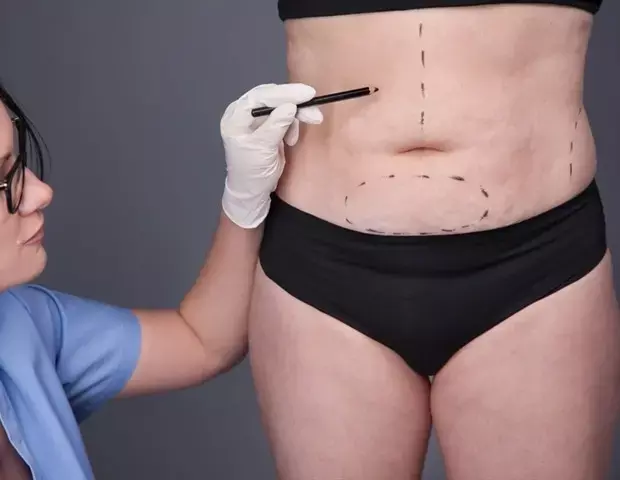- Home
- Medical news & Guidelines
- Anesthesiology
- Cardiology and CTVS
- Critical Care
- Dentistry
- Dermatology
- Diabetes and Endocrinology
- ENT
- Gastroenterology
- Medicine
- Nephrology
- Neurology
- Obstretics-Gynaecology
- Oncology
- Ophthalmology
- Orthopaedics
- Pediatrics-Neonatology
- Psychiatry
- Pulmonology
- Radiology
- Surgery
- Urology
- Laboratory Medicine
- Diet
- Nursing
- Paramedical
- Physiotherapy
- Health news
- Fact Check
- Bone Health Fact Check
- Brain Health Fact Check
- Cancer Related Fact Check
- Child Care Fact Check
- Dental and oral health fact check
- Diabetes and metabolic health fact check
- Diet and Nutrition Fact Check
- Eye and ENT Care Fact Check
- Fitness fact check
- Gut health fact check
- Heart health fact check
- Kidney health fact check
- Medical education fact check
- Men's health fact check
- Respiratory fact check
- Skin and hair care fact check
- Vaccine and Immunization fact check
- Women's health fact check
- AYUSH
- State News
- Andaman and Nicobar Islands
- Andhra Pradesh
- Arunachal Pradesh
- Assam
- Bihar
- Chandigarh
- Chattisgarh
- Dadra and Nagar Haveli
- Daman and Diu
- Delhi
- Goa
- Gujarat
- Haryana
- Himachal Pradesh
- Jammu & Kashmir
- Jharkhand
- Karnataka
- Kerala
- Ladakh
- Lakshadweep
- Madhya Pradesh
- Maharashtra
- Manipur
- Meghalaya
- Mizoram
- Nagaland
- Odisha
- Puducherry
- Punjab
- Rajasthan
- Sikkim
- Tamil Nadu
- Telangana
- Tripura
- Uttar Pradesh
- Uttrakhand
- West Bengal
- Medical Education
- Industry
Gravitational loading not tied to bariatric surgery induced bone loss: Study

According to a study published in the Bone, gravitational loading was not significantly associated with weight and bone loss following bariatric surgery.
Mechanical unloading associated with weight loss might be one of the main causes of bariatric surgery (BS) induced bone loss. However, no study has tested this hypothesis through objectively measured accelerometry-derived gravitational loading.
A group of researchers from Portugal aimed to assess how gravitational loading changes following BS and how this correlates with bone mass losses.
The researchers assessed a total of 21 patients submitted to gastric bypass before, 1, 6 and 12 months after bariatric surgery (BS) for areal bone mineral density (BMD), calciotropic hormones, sclerostin, body composition and daily physical activity. Gravitational loading was determined as the sum of ground reaction forces assessed by the accelerometer which considered the interaction between weight and daily ambulation.
The results of the study are as follows:
- Mechanical stimuli promoted through the significant increase in steps number counterbalanced the gravitational loading decreases derived from the significant weight loss after bariatric surgery (BS). Gravitational loading volume decreased between pre-BS and 1-month post-BS, but remained stable between 6- and 12-months post-BS, despite decreases on hip, femoral neck and lumbar spine BMD. Serum sclerostin increased from pre-BS to 1-month post-BS, returning to pre-BS levels 6 months after surgery.
- Neither vitamin D nor parathyroid hormones were affected by BS. Weight variation was a predictor of BMD decreases at the total hip and femoral neck, whereas daily gravitational loading volume was not.
- Fat and lean mass changes were also predictors of BMD decrease at the total hip and femoral neck respectively.
Thus, the researchers concluded that gravitational loading only decreased during the first month after surgery remaining stable thereafter, and these changes do not seem to explain BS-induced bone loss. The association between weight and bone loss seems to result from other physiological aspects, fat and lean mass loss, rather than from a gravitational loading decrease.
Reference:
The effect of bariatric surgery on gravitational loading and its impact on bone mass by Diniz-Sousa F et. al. published in Bone.
https://doi.org/10.1016/j.bone.2021.116153
Dr. Shravani Dali has completed her BDS from Pravara institute of medical sciences, loni. Following which she extensively worked in the healthcare sector for 2+ years. She has been actively involved in writing blogs in field of health and wellness. Currently she is pursuing her Masters of public health-health administration from Tata institute of social sciences. She can be contacted at editorial@medicaldialogues.in.
Dr Kamal Kant Kohli-MBBS, DTCD- a chest specialist with more than 30 years of practice and a flair for writing clinical articles, Dr Kamal Kant Kohli joined Medical Dialogues as a Chief Editor of Medical News. Besides writing articles, as an editor, he proofreads and verifies all the medical content published on Medical Dialogues including those coming from journals, studies,medical conferences,guidelines etc. Email: drkohli@medicaldialogues.in. Contact no. 011-43720751


